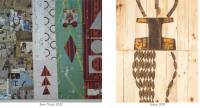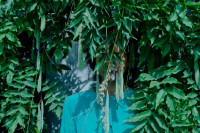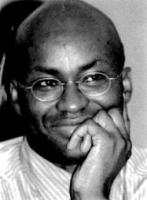African Contemporary Art
Articles tagged with African Contemporary Art
Tag Archive
- 2016
- academic knowledge
- African Contemporary Art
- afropolitismo
- Alqueva
- Ana Paula Tavares
- Andanças
- archive
- ariella aisha azoulay
- Belgium
- Berlim
- black art
- Brit Funk
- Bruno Candé
- c
- Cacheu
- Câmara Municipal de Lisboa
- caribbean
- choreographer
- Claire Andrade-Watkins
- Collective of Victims
- colonial legacies
- Cuca
- Cultural Programming
- dailylife
- David Adjaye
- departures
- Edson Chagas
- Felwine Sarr
- fight
- Fim do Mundo
- Flora Gomes
- forced migration
- Frelimo
- fronteiras
- government
- Guiné Bissao
- Hanami
- Harare
- imperialism
- interpretação do Brasil
- Italy
- Jihan el Tahri
- João Pedro George
- journeys
- Kenya
- kriolu
- LAC
- language diversity
- língua caboverdiana
- literature
- Looking After Freedom?
- Luandaino Vieira
- luso-tropicologia
- lyubov matyunina
- Manthia Diawara
- Mão Morta
- Margarida Cardoso
- material heritage
- menstruation
- migrations
- militant cinema
- moçambique
- Moçâmedes
- Monuments in Reverse
- morality police
- movie theaters
- music industry
- não dança?
- Neo-Colonization
- nepal
- Oppressions
- opression
- Orlando Pantera
- Panorama
- Paulina Chiziane
- PCP
- peinture
- Periferia
- políticas de ação afirmativas
- portuguese
- pos-colonial
- post-coloniality
- produção audiovisual brasileira.
- raça
- refineries
- rijksmuseum
- Ryszard Kapuscinski
- Sado
- Sao Tomé e Príncipe
- Sarah Maldoror
- schools
- sexual harassment
- Tervuren
- Toy Boy
- travelling
- Tuchangamke
- William Kentridge
- works of art
- Yonamine
 Toy Boy has followed the various stages of the country’s post-independence and initiated his artistic practice after the civil war. His work is an expression of life in Luanda, intrinsically linked to the suffering and creativity one feels in the streets. In tune with the city’s artistic movements and circles (such as Elinga Teatro and Fuckin’ Globo), Toy Boy tells us his story with the sincerity and sensitivity that describe him. Dribbling the difficulties in his path and the need for survival, he appropriates a certain pop art, making collages or ready-mades, installations, and using recycled materials such as rust, but, above all, he gives body and voice to the singularities of urban life. In Luanda 2022.
Toy Boy has followed the various stages of the country’s post-independence and initiated his artistic practice after the civil war. His work is an expression of life in Luanda, intrinsically linked to the suffering and creativity one feels in the streets. In tune with the city’s artistic movements and circles (such as Elinga Teatro and Fuckin’ Globo), Toy Boy tells us his story with the sincerity and sensitivity that describe him. Dribbling the difficulties in his path and the need for survival, he appropriates a certain pop art, making collages or ready-mades, installations, and using recycled materials such as rust, but, above all, he gives body and voice to the singularities of urban life. In Luanda 2022.  I think we always have the responsibility of looking into the ghosts of these colonial dreams and taking the ideas further. For example, we must rethink what are artwork features and what exactly defines them? Institutions change, in a slow and tedious way, but it happens. If we also think about the thesis and how it is configurated, how free can we be about the aesthetic part of it? Now we can offer “decolonize art studies” as a course. All the reconfigurations are a very long process to be achieved. A very important thing I would like to highlight is that where you are you must do your work and contribution. We should try to influence others with our work, inspiring them and trying to change what we know is wrong.
I think we always have the responsibility of looking into the ghosts of these colonial dreams and taking the ideas further. For example, we must rethink what are artwork features and what exactly defines them? Institutions change, in a slow and tedious way, but it happens. If we also think about the thesis and how it is configurated, how free can we be about the aesthetic part of it? Now we can offer “decolonize art studies” as a course. All the reconfigurations are a very long process to be achieved. A very important thing I would like to highlight is that where you are you must do your work and contribution. We should try to influence others with our work, inspiring them and trying to change what we know is wrong.  Our original strategy was always to bring African artists to the international stage, which I think is what is missing, and maybe one day we would be very happy to go but I think there are many other places where we can go, which we are trying to do already, for example, workshops for galleries, for artists. I think there’s much more on the educational side of things that we can bring with our knowledge to the continent than having a commercial initiative about sales.
Our original strategy was always to bring African artists to the international stage, which I think is what is missing, and maybe one day we would be very happy to go but I think there are many other places where we can go, which we are trying to do already, for example, workshops for galleries, for artists. I think there’s much more on the educational side of things that we can bring with our knowledge to the continent than having a commercial initiative about sales.  I hate the idea that African life is simple bare life - the life of an empty stomach and a naked body waiting to be fed, clothed, healed or housed. It is a conception that is embedded in "development" ideology and practice. It radically goes against people's own daily experience with the immaterial world of the spirit, especially as it manifests itself under conditions of extreme precariousness and radical uncertainty. This kind of metaphysical and ontological violence has long been a fundamental aspect of the fiction of development the West seeks to impose on those it has colonized. We must oppose it and resist such surreptitious forms of dehumanization.
I hate the idea that African life is simple bare life - the life of an empty stomach and a naked body waiting to be fed, clothed, healed or housed. It is a conception that is embedded in "development" ideology and practice. It radically goes against people's own daily experience with the immaterial world of the spirit, especially as it manifests itself under conditions of extreme precariousness and radical uncertainty. This kind of metaphysical and ontological violence has long been a fundamental aspect of the fiction of development the West seeks to impose on those it has colonized. We must oppose it and resist such surreptitious forms of dehumanization. 